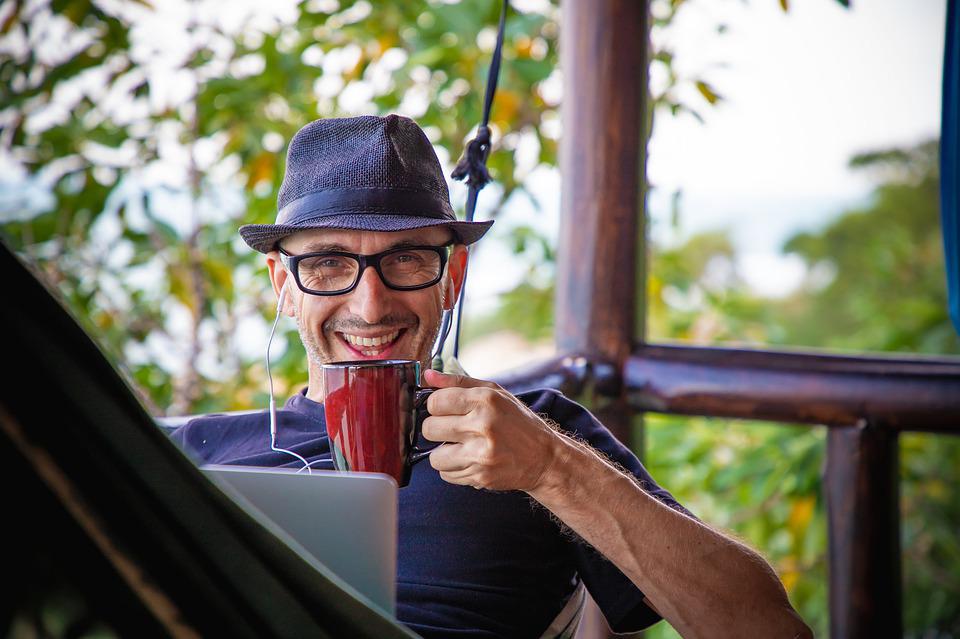Contrary to the popular image of digital nomads as scrappy minimalists, data indicates that most of them are making pretty good money. In fact, Statista.com reports that their March 2022 survey shows most digital nomads are earning somewhere between $50,000 – $250,000 a year. They do this in more ways than people might expect, with Adventure Travel Trade Association survey turning up that only 36% call themselves freelancers. In regards to the type of work; there’s no specific job as digital nomads pick up all sorts of work online.
In the meantime, online poker is part of a global online gaming market that is attracting so much activity as to have a projected CAGR of over 11% between 2021-2028. This means that more people are looking to online poker in order to earn some money. This begs the question: can digital nomads, who normally earn money online to start with, generate additional earnings via online poker? There are a few factors that need to be considered in order to answer this question.
Location
There’s certainly an issue around legalized poker in some countries, so you must research where you can play. In the US, it is more complicated than most places. According to an updated look at states with legal online poker at Poker.org, only Delaware, Michigan, Nevada, New Jersey, and Pennsylvania have legally-operated poker sites where you can play for real money. West Virginia and Connecticut have legalized online poker as well, but have yet to find operators that apply for licenses in those states. So even though digital nomads can usually work from anywhere, the possibility of earning money through online poker in the US is still limited to only five states so far.
Approach
One of the most profitable approaches includes playing low-stakes games as opposed to being lured in by high-stakes wins that have the potential to net thousands at a time. It’s true that low-stakes games have lower pots to win, but over time, your wins should accumulate. Another benefit is that if (when) you lose a round, it won’t be as painful as losing in a high-stakes game. Another approach to winning poker games, according to poker star Daniel Neagranu’s MasterClass, is to pay attention to your own position as well as your opponents’ positions and play accordingly. For example, playing conservatively if you’re short-stacked is a way to protect that stack, while playing more aggressively when you have a big stack.
Skill
The skill players have is usually going to trump the type of hand you’re dealt. According to this 2013 study from the National Library of Medicine, professional or expert-level players were better able to win or at least minimize their losses when dealt a worse-than-average hand. Skill does play a role, which means people can make winning more likely. To improve your skills at poker, try learning to calculate pot odds, winning odds, and possibilities of your opponents’ hands based on the information you’re given (i.e. the community cards together with your own cards and your opponents’ decisions). Another way to improve the your skills is to read up on poker strategies, starting with Maria Konnikova’s The Biggest Bluff – written by not an expert poker player, but a PhD holder in Psychology.
Discipline
Discipline has to do with protecting your bankroll, which can also include knowing when to leave the table and stop playing for the night. As you play, you’ll recognize what works best: $5 buy-ins at 5-player tables may not excite you as much as $50 buy-ins at 5-player tables, but you may find that because the smaller stakes attract beginning players, you win more over time than you do at the bigger tables.
Conclusion
Poker – online or otherwise – will always come with risk, even with the skill factor. Furthermore, it might not be convenient for all players given the location issue. But with digital nomads finding all kinds of ways to generate significant earnings, those who know the game could always give it a try.
For more information regarding living off the grid and having a nomadic lifestyle (digital or otherwise, visit us again at OffgridHub.com.
